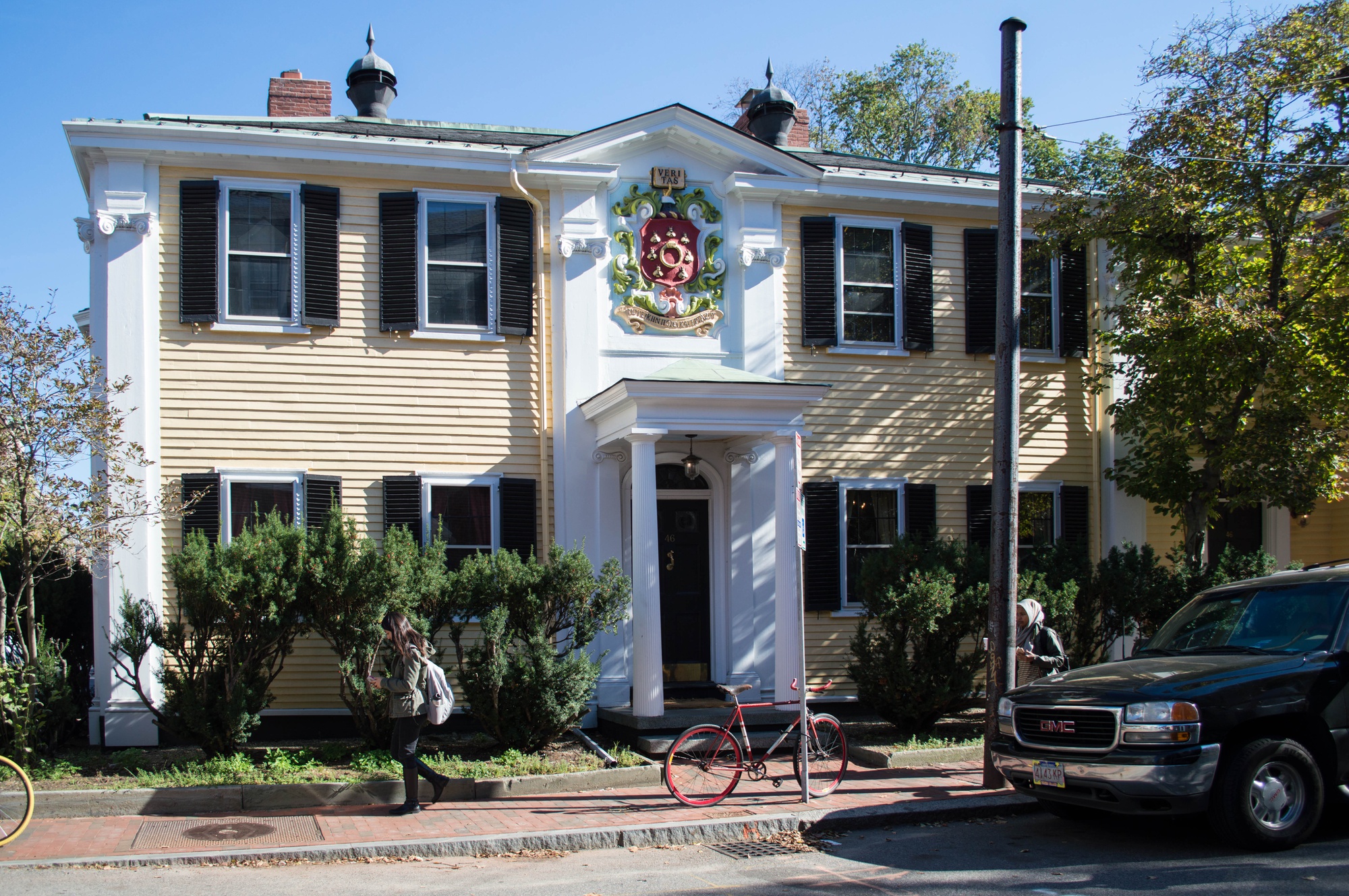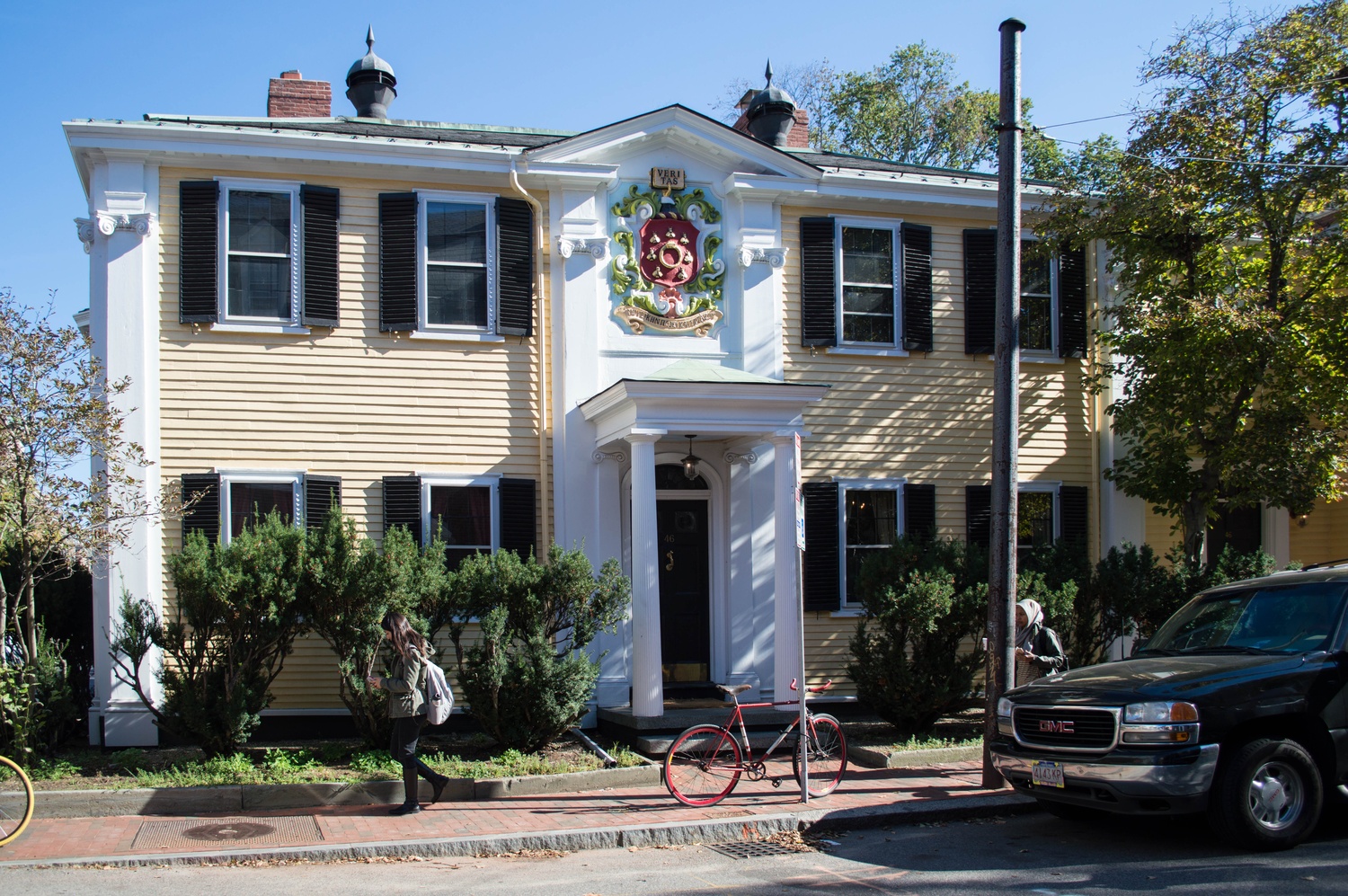
News
Summers Will Not Finish Semester of Teaching as Harvard Investigates Epstein Ties

News
Harvard College Students Report Favoring Divestment from Israel in HUA Survey

News
‘He Should Resign’: Harvard Undergrads Take Hard Line Against Summers Over Epstein Scandal

News
Harvard To Launch New Investigation Into Epstein’s Ties to Summers, Other University Affiliates

News
Harvard Students To Vote on Divestment From Israel in Inaugural HUA Election Survey
Signet Continues Outreach Efforts with Second Year of Open Applications

Prospective members trickled in and out of the Signet Society’s pale, yellow-tinted cottage at 46 Dunster St. on Tuesday and Wednesday evenings, gauging their interest in the off-campus arts and letters social club at the group’s two open house events.

The information sessions were part of a continued effort by the Signet to promote diversity and inclusivity within its ranks, according to Auguste J. Roc ’17, the club’s president. The Signet is currently considering candidates for admission with a two-week long, open-application process—its second year doing so.
The co-ed organization, which was founded in 1870, hosts weekly lunches and socials for its members, and engages with faculty on topics of art and literature.
The revamped open application process debuts after a members-only town hall held on Sept. 11. Continuing to rework the details of the open process, the group will hold—in addition to the open-house events—lunches throughout the next week with prospective members, as well as afternoon teas and other social events.
The new procedure for electing members is a departure from the club’s traditional “put-up” process, where new members needed to be nominated by peers within the Signet in order to be considered for admission.
“Inherently, ‘put-up’ processes are exclusive,” Roc said. “And so by opening up to the larger arts community, and focusing on being inclusive of not just race but different academic fields and different campus groups, we inevitably make a more diverse group on all of those levels.”
She added that while the traditional nomination process favored those in established campus arts organizations, such as the Harvard Advocate and Harvard Lampoon, now the Signet is beginning to court artists from “less conventional spaces in the arts community at Harvard.”
With regards to the new application process, the Signet emphasized in their house-wide emails that the events of the first week are solely for the benefit of prospective applicants, and not evaluative. Rather, membership is determined with regard to applicants’ “intellectual, literary and artistic ability and achievements,” according to the Signet’s website.
Members of the Signet publicized its application and the group’s two open house events through an email blast to every House list they could access.
“Here’s some info about an organization that’s at least nominally less morally bankrupt than some other organizations that it resembles,” David J. Kurlander ’17, a member of the Signet and inactive Crimson editor, wrote in an email to the Adams House list, referencing the controversy that has recently embroiled many of Harvard’s other off-campus social organizations.
Physically situated in between the Spee Club on one side and the Fox Club, one street over, the Signet has historically been compared to—and tried to distinguish itself from—its neighboring final clubs, some of which are also trying out open entry processes this semester.
Though the Office of Student Life does not list the Signet as a an officially recognized student organization, it has enjoyed some benefits traditionally reserved for such groups. Per OSL rules, unrecognized social groups may not publicize over house lists. Unrecognized groups are also not permitted to receive Undergraduate Council funding, through the UC, in what it later noted as an error, approved a grant request by the Signet last spring.
Roc wrote in an email that the Signet is “Harvard-affiliated.”
Joshuah B. Campbell ’16, an alumnus of the Signet present at Tuesday’s open house, noted that the most recent efforts to promote diversity within the group were already bearing fruits.
“Having been here for the change to the open applications, I can definitely say that the artistic communities that are now represented in this space have broadened quite a bit,” he said.
Beyond the application process, Campbell also noted other initiatives that the undergraduate leadership of the past few years had undertaken to make the Signet more inclusive for its members. As an example, he mentioned that all bathrooms at the clubhouse are now gender neutral.
Last year administrators relabeled gender-specific bathrooms throughout Adams House with gender-neutral signage, in an effort to make the space more welcoming to BGLTQ students.
“The imperative really came from the broader shift in campus culture that was happening, starting with the administration emphasizing a turn toward inclusivity,” Campbell said.
—Staff Writer Derek G. Xiao can be reached at derek.xiao@thecrimson.com. Follow him on Twitter @derekgxiao
Want to keep up with breaking news? Subscribe to our email newsletter.
